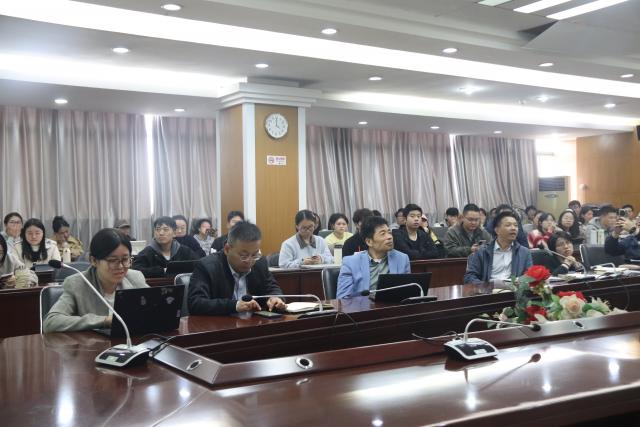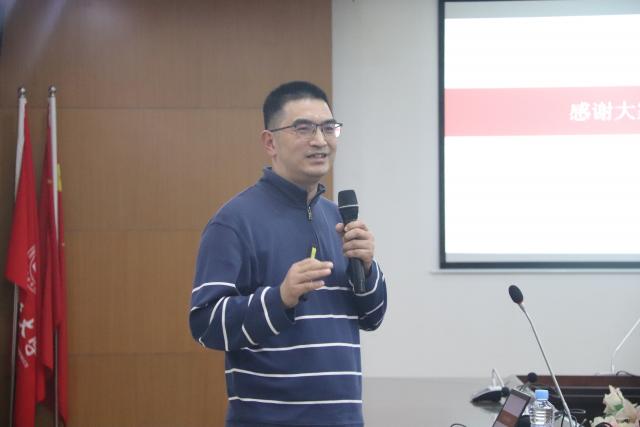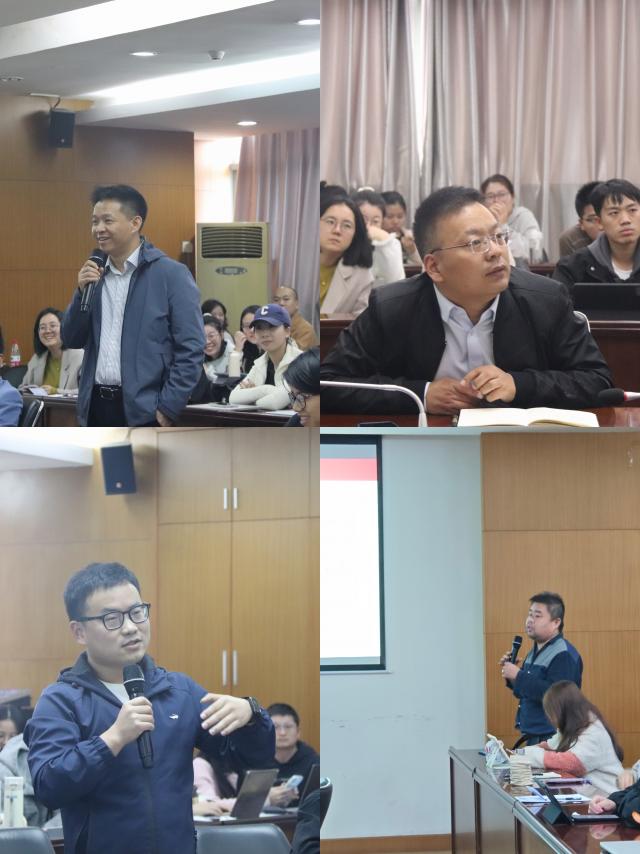On the afternoon of November 8, 2024, Professor Yang Qijing of Renmin University of China delivered an academic report entitled "E-commerce and Inter-regional Transactions of Enterprises: Based on the Perspective of Transaction Cost Economics" to the teachers and students of our university in Conference Room 3, 11th Floor, South District.

Professor Yang's explanation is logical and rich in content. First of all, from the perspective of e-commerce to improve the transaction, which triggered a series of in-depth research. In the course of the research, two important hypotheses are put forward: First, e-commerce can help reduce the cost of searching and negotiating in advance. For locally-oriented enterprises, e-commerce is more effective in reducing search costs; For foreign-oriented enterprises, its role in reducing negotiation costs is more prominent. Second, although e-commerce can expand the transaction scope of enterprises, it will increase the cost of post-management to a certain extent. However, strengthening the governance of third-party platforms and e-commerce associations can help mitigate this rising cost trend.

Professor Yang then elaborated on the research design, especially the construction of cross-regional transaction indicators. Through the form of pictures, it is clearly divided into four steps to show, so that everyone can see at a glance.
In the estimation results section, the results of baseline regression, parallel trend test, robustness test, missing factors and competing hypothesis, and heterogeneity analysis are covered. In order to facilitate understanding, Professor Yang equipped each part with graphics, not only marked the key content in red, but also explained its meaning, so that complex content becomes easy to grasp.
Then enter the mechanism analysis. On the one hand, the pre-search costs in different transaction links, including pre-search costs and pre-negotiation costs; On the other hand, the after-management cost in different transaction links. In this section, Professor Yang also leads us to think about the rising cost of governance, with particular emphasis on the factor of trading with new partners.
Finally, the extension analysis focuses on geographic distance and market reach. In terms of geographical distance, e-commerce helps to expand the transaction distance within about 2,000 kilometers, but this promotion is limited by the law of distance attenuation, which is difficult to help enterprises carry out multiple transactions with regions beyond 2,200 kilometers in the country. Based on the investigation of administrative barriers, it involves the discovery of administrative barriers and grouping regression, which further deepens the understanding of e-commerce's impact on transactions.

After the lecture, the teachers and students actively asked questions. With his profound knowledge and rigorous academic attitude, Professor Yang has given profound and detailed answers to every question.
This lecture is a feast of knowledge, but also a wonderful collision of ideas. We eagerly look forward to more such high-quality academic exchange activities in the future, so as to promote the in-depth development of academic research and the wide dissemination of knowledge, and contribute to the construction of disciplines and academic progress.

